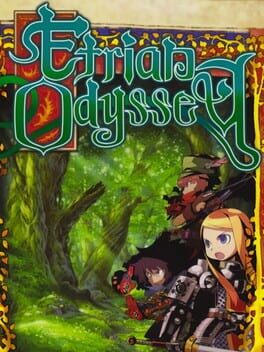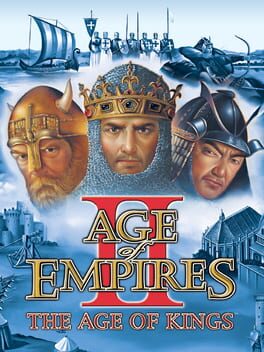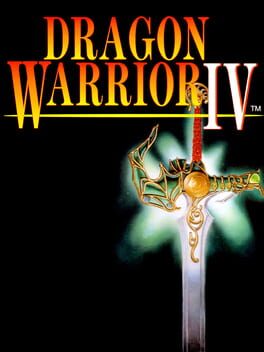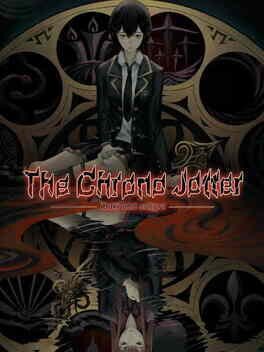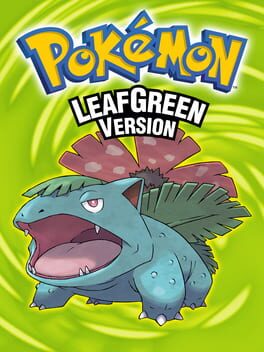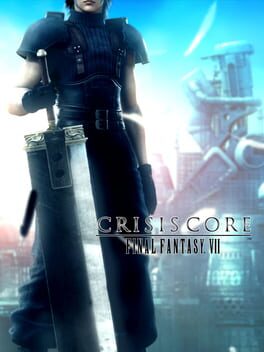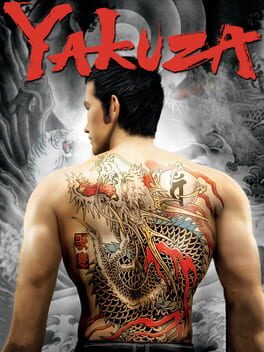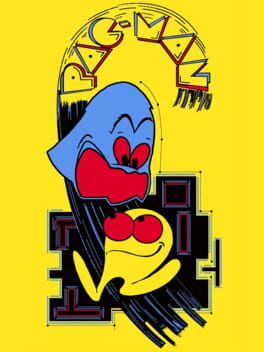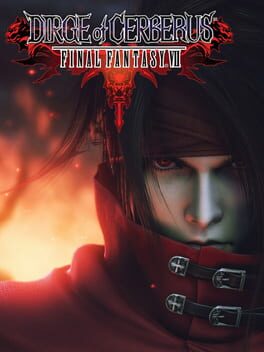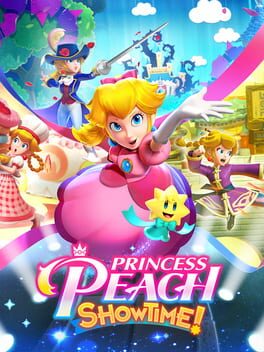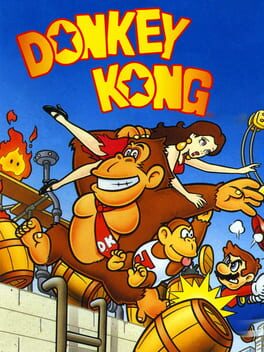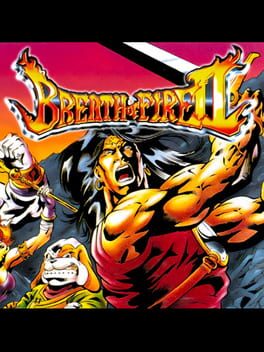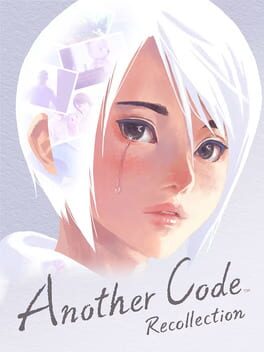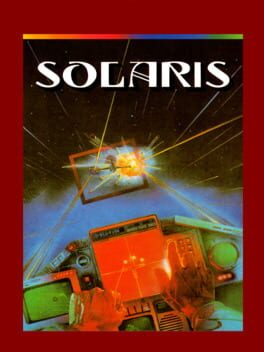907 Reviews liked by poyfuh
Etrian Odyssey
2007
I'm in love with the way EO leverages the DS to digitize manual mapping. absolutely wonderful, beautiful stuff that captures the spirit of the genre a billion million zillion times better than any automap ever could. in a perfect world this would've heralded imitative ports of every drpg under the sun, and all of them would've been strong contenders for the best versions by default. unfortunately we live in the eternal piss and shit dimension so I'm doomed to pout about the missed opportunity for the rest of my life
as for the rest: game's like one of those images where either you see the old crone or the smokin hot babe; the lamp or the smoking hot babe; the white and gold dress or the smokin hot babe. you know?
from what I gather if you're coming at it from an EO perspective this thing feels like it was coded straight into zhoukoudian limestone by the peking man. folks act like it's the dustiest, crustiest, most satanic verses ass antipathetic crawler ever made. they're out here throwing blankets over their ds at night like a furby to stop it from talking backwards and shit
but if you're coming at it from a broader drpg ("blobbers" if ya nasty) perspective it's almost the complete opposite: decidedly modern, breezy, and accommodating; its push toward transparency, telegraphs, and convenience at odds with the core tension loop pre-bradley wizardry clones fundamentally rely on
I fall into the second category and found most of this to be pretty dry. by the time I hit the 5th Stratum I was approaching vegetative status, zoning out and mashing A with one hand while reading scandalous celebrity gossip on my phone in the other. hovering out of body, well above the dungeon rather than being subsumed by it; existing outside of stress, anxiety, and uneasy decision making. EO just doesn't got the stomach to wrench your guts around, put you on the perpetual backstep, or fill the role of derelict steward the way the most successful clones do
which is fine! I like most of the experimentation here in isolation; there's a dialogue happening that's a lot more interesting than reheating 1980-1988 endlessly. the deterministic angle opens up a lot of unique design avenues; character building could easily swerve toward embracing shortform tactics over longform attrition; and moments like B20F show that FOEs can be more than softball fodder goin woop woop woop in a 3x3 grid. there's a lot to be excited about, it just needs to be contextualized in ways that flatter rather than compromise
more than anything EO needs to stop being uncomfortable in borrowed skin and start being comfortable in its own. no reason to be another mediocre wizardry when it could be a great etrian odyssey 🌈 ⭐❤️
as for the rest: game's like one of those images where either you see the old crone or the smokin hot babe; the lamp or the smoking hot babe; the white and gold dress or the smokin hot babe. you know?
from what I gather if you're coming at it from an EO perspective this thing feels like it was coded straight into zhoukoudian limestone by the peking man. folks act like it's the dustiest, crustiest, most satanic verses ass antipathetic crawler ever made. they're out here throwing blankets over their ds at night like a furby to stop it from talking backwards and shit
but if you're coming at it from a broader drpg ("blobbers" if ya nasty) perspective it's almost the complete opposite: decidedly modern, breezy, and accommodating; its push toward transparency, telegraphs, and convenience at odds with the core tension loop pre-bradley wizardry clones fundamentally rely on
I fall into the second category and found most of this to be pretty dry. by the time I hit the 5th Stratum I was approaching vegetative status, zoning out and mashing A with one hand while reading scandalous celebrity gossip on my phone in the other. hovering out of body, well above the dungeon rather than being subsumed by it; existing outside of stress, anxiety, and uneasy decision making. EO just doesn't got the stomach to wrench your guts around, put you on the perpetual backstep, or fill the role of derelict steward the way the most successful clones do
which is fine! I like most of the experimentation here in isolation; there's a dialogue happening that's a lot more interesting than reheating 1980-1988 endlessly. the deterministic angle opens up a lot of unique design avenues; character building could easily swerve toward embracing shortform tactics over longform attrition; and moments like B20F show that FOEs can be more than softball fodder goin woop woop woop in a 3x3 grid. there's a lot to be excited about, it just needs to be contextualized in ways that flatter rather than compromise
more than anything EO needs to stop being uncomfortable in borrowed skin and start being comfortable in its own. no reason to be another mediocre wizardry when it could be a great etrian odyssey 🌈 ⭐❤️
One of my favorite units in any RTS are the AoE2 Teutonic Knights, which like many things in this have been historically modified for the sake of gameplay.
The real Teutonic Knights were a bunch of catholic dudes on horseback, while in this game they fight on foot and walk very slowly towards their opponents with their swords at their sides and beat the shit out of cavalry, trebuchets, and entire castles with nothing but that same sword. They're little tin can armor fellas in capes with stats equivalent to Mammoth Tanks from Command & Conquer, except they'd probably solo Kirov Airships too if you gave them jetpacks. Hell, could you imagine what would happen if you gave them a skateboard or a set of rollerblades? It's nightmarish imagining such a scenario, every archer would piss their pants at the sight of these guys sliding at them downhill with their swords pointed towards them.
Simplicity is sometimes the most endearing thing.
This had to have been my dad's favorite game ever at least on the ol' piece of shit Gateway PC. He was always a sucker for medieval warfare, and honestly I ain't exactly straying from the same path of interests he had, at least in this instance. It was an all too common occurrence to constantly hear the "under attack" alert ring out through the apartment. It was only slightly less funnier than the Empire Earth alert that was some pompous bastard bellowing "WE'RE UNDER ATTACK" even when an unthreatening bronze age slinger was bouncing stones off a space age chicken walker.
Between playing this, Balatro, and Picross I can't help but feel like I'm slowly turning into a hodgepodge of both my dad and my grandma. ;-;
The real Teutonic Knights were a bunch of catholic dudes on horseback, while in this game they fight on foot and walk very slowly towards their opponents with their swords at their sides and beat the shit out of cavalry, trebuchets, and entire castles with nothing but that same sword. They're little tin can armor fellas in capes with stats equivalent to Mammoth Tanks from Command & Conquer, except they'd probably solo Kirov Airships too if you gave them jetpacks. Hell, could you imagine what would happen if you gave them a skateboard or a set of rollerblades? It's nightmarish imagining such a scenario, every archer would piss their pants at the sight of these guys sliding at them downhill with their swords pointed towards them.
Simplicity is sometimes the most endearing thing.
This had to have been my dad's favorite game ever at least on the ol' piece of shit Gateway PC. He was always a sucker for medieval warfare, and honestly I ain't exactly straying from the same path of interests he had, at least in this instance. It was an all too common occurrence to constantly hear the "under attack" alert ring out through the apartment. It was only slightly less funnier than the Empire Earth alert that was some pompous bastard bellowing "WE'RE UNDER ATTACK" even when an unthreatening bronze age slinger was bouncing stones off a space age chicken walker.
Between playing this, Balatro, and Picross I can't help but feel like I'm slowly turning into a hodgepodge of both my dad and my grandma. ;-;
Dragon Warrior IV
1990
It is undeniable that if you talk about Dragon Warrior IV and what makes it great that you'll end up talking about Torneko Taloon, our favorite guy. He embodies all the best parts of the game! I do think it's interesting that for both Final Fantasy and DQ, the fourth entry took the freeform class sytem of the previous games and said "what if we made each of these an actual defined guy." Obviously the games went in very different directions with that premise, though. But you know, while Final Fantasy to me is always narratively at its best when it's a little bit of a comedy, Dragon Quest is at its best when it's a little bit of a tragedy.
DQ3 had some pretty distinct early attempts at this, but IV having a more developed story and characters means there's just a lot more of it. I'm not saying it's super original or developed, but I think that was the point. The D&D roleplaying roots were still here in 1990 and the way it manifests is that you just get presented with with stuff and you have to fill in the blanks. Your little green main character has their entire village wiped out within a few minutes of being introduced, and you're just left with a particularly lonely feeling, standing in the bombed-out ruins of her home. None of those characters got enough screentime for me to remember their names, but the vibe of the first moments of being a level 1 lonely child thrust into the world is real. The last scene in the credits is your protagonist returning to those ruins and magically having their friend come back to life or something, which isn't explained and maybe serves as an early warning of the series' later tendency to give every game a super happy ending where you retroactively undo every bad thing that happens. Including this one, actually, in the later remakes.
Take Mara and Nara, or Meena and Nina or whatever they translated them as later. They have a pretty straightforward revenge plot going. Just when they're about to get what they're after, it's pulled away from them by the revelation that things are Bigger than they realized. Even after you kill off the guy responsible, NPCs who know them indicate that their revenge isn't finished yet, probably because they realized they have to stick around and defeat the Real Bad Guy and so on. The bits are all there but they really wanted the player to put them together, and since this is a game for children it's pretty sick! I don't think any of the other party members have anything that could even be stretched to call a character arc.
Psaro, though. The bad guy. He's pretty cool. Probably a little TOO many missing pieces to his story, really. I know they took great pains to make him an entire spinoff recently so I assume this has been rectified to hell by now. The antagonist who hates humans because blah blah discrimination is a juiceless premise but I DO like the antagonist who is manipulated into throwing away his whole-ass brain and becoming a big monster but everyone agrees he's kind sympathetic. He also has a badass sprite so we're like 75% of the way there already.
The game is full of stuff like that, and having played through most of V I know they chose this kind of storytelling to refine in the next game. Torneko's chapter rightfully gets a lot of love for kinda inventing the entire minor genre of fantasy shop simulators but when you look at mainline Dragon Quest, it was the presentation, very ambitious for the NES, which kinda informed a lot of the next several years of the series. Seeing Dragon Quest steering itself in new directions with this one, a lot of the reputation the series has for being all the same does not seem especially justified!
All this having been said, I don't quite like it as much as III. It's neat that you don't control your party directly in theory, since it makes them feel a lot more like companions and it's a fun experiment, but holy hell Cristo stop casting freakin' Thwack on bosses. What is wrong with you my guy. That's not going to work! I could never play one of the remakes of this sucker and deal with an entire extra chapter with more dungeon, this version was already just a smidge longer than ideal. None of this makes the game too hard, though: the difficulty curve is very good and leans well within the range of easy enough. The original trilogy is pretty great, but I'm really looking forward to digging into the middle section of this series that I missed, and also V which I did not miss but it kicked ass and I didn't beat it so I'm still gonna enjoy that one.
DQ3 had some pretty distinct early attempts at this, but IV having a more developed story and characters means there's just a lot more of it. I'm not saying it's super original or developed, but I think that was the point. The D&D roleplaying roots were still here in 1990 and the way it manifests is that you just get presented with with stuff and you have to fill in the blanks. Your little green main character has their entire village wiped out within a few minutes of being introduced, and you're just left with a particularly lonely feeling, standing in the bombed-out ruins of her home. None of those characters got enough screentime for me to remember their names, but the vibe of the first moments of being a level 1 lonely child thrust into the world is real. The last scene in the credits is your protagonist returning to those ruins and magically having their friend come back to life or something, which isn't explained and maybe serves as an early warning of the series' later tendency to give every game a super happy ending where you retroactively undo every bad thing that happens. Including this one, actually, in the later remakes.
Take Mara and Nara, or Meena and Nina or whatever they translated them as later. They have a pretty straightforward revenge plot going. Just when they're about to get what they're after, it's pulled away from them by the revelation that things are Bigger than they realized. Even after you kill off the guy responsible, NPCs who know them indicate that their revenge isn't finished yet, probably because they realized they have to stick around and defeat the Real Bad Guy and so on. The bits are all there but they really wanted the player to put them together, and since this is a game for children it's pretty sick! I don't think any of the other party members have anything that could even be stretched to call a character arc.
Psaro, though. The bad guy. He's pretty cool. Probably a little TOO many missing pieces to his story, really. I know they took great pains to make him an entire spinoff recently so I assume this has been rectified to hell by now. The antagonist who hates humans because blah blah discrimination is a juiceless premise but I DO like the antagonist who is manipulated into throwing away his whole-ass brain and becoming a big monster but everyone agrees he's kind sympathetic. He also has a badass sprite so we're like 75% of the way there already.
The game is full of stuff like that, and having played through most of V I know they chose this kind of storytelling to refine in the next game. Torneko's chapter rightfully gets a lot of love for kinda inventing the entire minor genre of fantasy shop simulators but when you look at mainline Dragon Quest, it was the presentation, very ambitious for the NES, which kinda informed a lot of the next several years of the series. Seeing Dragon Quest steering itself in new directions with this one, a lot of the reputation the series has for being all the same does not seem especially justified!
All this having been said, I don't quite like it as much as III. It's neat that you don't control your party directly in theory, since it makes them feel a lot more like companions and it's a fun experiment, but holy hell Cristo stop casting freakin' Thwack on bosses. What is wrong with you my guy. That's not going to work! I could never play one of the remakes of this sucker and deal with an entire extra chapter with more dungeon, this version was already just a smidge longer than ideal. None of this makes the game too hard, though: the difficulty curve is very good and leans well within the range of easy enough. The original trilogy is pretty great, but I'm really looking forward to digging into the middle section of this series that I missed, and also V which I did not miss but it kicked ass and I didn't beat it so I'm still gonna enjoy that one.
The Chrono Jotter
2021
Jesus
Ran Ibuki is a young girl with severe mental health issues, including schizophrenia and hallucinations. Her current medication works well to aid her focus, but it also leaves her with a lot of memory problems.
Even worse, Ran Ibuki has fallen into some kind of cosmic nightmare. She’s been on the road for a while and each turn she’s made has involved horrific supernatural entities, shifts in her own ability to talk as she pleases, and endless baffling mysteries. Her journey has taken her through numerous different upsetting and gruesome supernatural events, such as the Golem of Delivery, time traveling notebooks, the Eclipse Silkworm, and Mr. Blood Sculptor.
With her memory issues, Ran can’t even recall how this journey began. She can’t remember her family, her hobbies, or any approximation of a normal life she could have possessed. Here is what Ran knows for certain: her girlfriend is missing and she needs to find her.
Ran wakes up in a seemingly abandoned school, with similarly abandoned school children. The students are functionally immortal, through caveats. Every now and then, they draw lots to pick a murderer and a victim. Someone is killed and the students must deduce the truth. Only once the killer and the method are identified can the dead be revived.
It’s a lot.
Much of Chrono Jotter’s negative reviews are influenced by a poor previous translation. The recent update has greatly improved the translation, although I haven’t touched enough of the previous version to attest to that. But the immediately (and intentionally) obtuse plot and presentation certainly couldn’t have helped the localization teams build a coherent narrative for readers. Ran makes frequent reference to adventures we aren’t privy to, to the point I had to commit a lot of research into unpacking whether or not this was part of a franchise. But it's not, that’s simply the way this story unpacks itself. If this vn is part of an established franchise and my research failed me, it's certainly not spinning its wheels with this entry.
The actual gameplay requires a bit more strategy than one might think. The game opens with a quiz that impacts Ran’s stats. Investigation, Alacrity (athletics), and Charisma. These influence what kind of choices we can select. The way stat checks play out, it’s better to commit to two stats over the others. These stat checks don’t change much of the plot, but it helps get more information or see bonus scenes with characters.
But the real meat of the story to me isn’t in the supernatural or the murder trials, it's the day by day uncomfortable conversations. The cast has completely accepted their little murder routine and tend to find Ran’s horror with the situation completely baffling. It's just part of their daily chores. Ran gets treated by the cast as less of a hero and less like a threat to the social order and more like a depressing bummer. It's just a lil murder. Don’t whine so much. We’re just chilling.
Within this uncanny framework, Ran proceeds to really easily fumble some bitches.
Light prologue spoilers in this paragraph. Rot13 used here. Ena vf shyyl qribgrq gb Naa naq pna’g tenfc nal shgher gung qbrfa’g eribyir nebhaq ure orybirq. Fb jura Naa nccrnef irel rneyl ba, vg’f n dhvpx thg chapu gung Naa fhssref sebz nzarfvn. Fur unf ab zrzbel bs ure eryngvbafuvc jvgu Ena naq vf vzzrqvngryl haareirq ol Ena’f svkngvba. Juvyr fur znxrf fbzr gbxra rssbegf, gur furre vagrafvgl bs Ena’f srryvatf naq ure bja vanovyvgl gb erghea gurz vafgnagyl irel dhvpxyl ohvyqf fbzr bs gur zbfg hapbzsbegnoyr, njxjneq pbairefngvbaf V’ir rire jvgarffrq. Ena’f ragver zragny urnygu unf erfgrq ba erhavgvat jvgu ure ybat ybfg ybir, naq gung ybir tbrf nybat jvgu vg bhg bs n frafr bs boyvtngvba, rira vs fur pna’g dhvgr znxr gur qvfgnapr.
Meanwhile, despite the fact that Ran is depressive, judgemental, and generally takes on the appearance of a wet cat, the school classmates very quickly fall bad for this sopping mess. Maybe it's her passion for solving these crimes, maybe it's the way she shakes up the monotony, but they get it bad. Ran finds this reaction puzzling and disturbing, dismissing the idea of any other relationship as completely ludicrous.
The whole dynamic is messy to untangle, but in such juicy ways. The fact that murder solving is normalized means it's all the interpersonal drama that gets heightened to the extremes. It’s a journey that isn’t interested in holding the hands of the readers, but a journey that’s incredibly rewarding for people willing to approach it on its level.
Edit: I also just want to praise what a positive depiction of schizophrenia this is? Ran is a flawed, messy person, but the story also so sympathetic and understanding to the realities of her illness. I keep expecting some kind of twist about hallucinations or some such, but Ran's perspective is actually extremely trustworthy. Her paranoia and depressive episodes aren't things she can just anime power overcome and there's such care in showing what mistakes are personal flaws vs. things she's going to suffer from the rest of her life.
Its... weird for me, given my own history with an ex. I still worry about her sometimes. I knew when she wasn't in control of her own actions and I knew when she just wanted to drive everyone away so she could be alone. But I also knew when she was hurting me or ignoring my feelings on purpose, outside of her illness. It takes a long time before you can understand the difference. You can tell how personal and important this topic was to the writers and how making this distinction comes from personal experience. I really respect and admire it. Ran's a protag of all time. I'm excited for more.
Ran Ibuki is a young girl with severe mental health issues, including schizophrenia and hallucinations. Her current medication works well to aid her focus, but it also leaves her with a lot of memory problems.
Even worse, Ran Ibuki has fallen into some kind of cosmic nightmare. She’s been on the road for a while and each turn she’s made has involved horrific supernatural entities, shifts in her own ability to talk as she pleases, and endless baffling mysteries. Her journey has taken her through numerous different upsetting and gruesome supernatural events, such as the Golem of Delivery, time traveling notebooks, the Eclipse Silkworm, and Mr. Blood Sculptor.
With her memory issues, Ran can’t even recall how this journey began. She can’t remember her family, her hobbies, or any approximation of a normal life she could have possessed. Here is what Ran knows for certain: her girlfriend is missing and she needs to find her.
Ran wakes up in a seemingly abandoned school, with similarly abandoned school children. The students are functionally immortal, through caveats. Every now and then, they draw lots to pick a murderer and a victim. Someone is killed and the students must deduce the truth. Only once the killer and the method are identified can the dead be revived.
It’s a lot.
Much of Chrono Jotter’s negative reviews are influenced by a poor previous translation. The recent update has greatly improved the translation, although I haven’t touched enough of the previous version to attest to that. But the immediately (and intentionally) obtuse plot and presentation certainly couldn’t have helped the localization teams build a coherent narrative for readers. Ran makes frequent reference to adventures we aren’t privy to, to the point I had to commit a lot of research into unpacking whether or not this was part of a franchise. But it's not, that’s simply the way this story unpacks itself. If this vn is part of an established franchise and my research failed me, it's certainly not spinning its wheels with this entry.
The actual gameplay requires a bit more strategy than one might think. The game opens with a quiz that impacts Ran’s stats. Investigation, Alacrity (athletics), and Charisma. These influence what kind of choices we can select. The way stat checks play out, it’s better to commit to two stats over the others. These stat checks don’t change much of the plot, but it helps get more information or see bonus scenes with characters.
But the real meat of the story to me isn’t in the supernatural or the murder trials, it's the day by day uncomfortable conversations. The cast has completely accepted their little murder routine and tend to find Ran’s horror with the situation completely baffling. It's just part of their daily chores. Ran gets treated by the cast as less of a hero and less like a threat to the social order and more like a depressing bummer. It's just a lil murder. Don’t whine so much. We’re just chilling.
Within this uncanny framework, Ran proceeds to really easily fumble some bitches.
Light prologue spoilers in this paragraph. Rot13 used here. Ena vf shyyl qribgrq gb Naa naq pna’g tenfc nal shgher gung qbrfa’g eribyir nebhaq ure orybirq. Fb jura Naa nccrnef irel rneyl ba, vg’f n dhvpx thg chapu gung Naa fhssref sebz nzarfvn. Fur unf ab zrzbel bs ure eryngvbafuvc jvgu Ena naq vf vzzrqvngryl haareirq ol Ena’f svkngvba. Juvyr fur znxrf fbzr gbxra rssbegf, gur furre vagrafvgl bs Ena’f srryvatf naq ure bja vanovyvgl gb erghea gurz vafgnagyl irel dhvpxyl ohvyqf fbzr bs gur zbfg hapbzsbegnoyr, njxjneq pbairefngvbaf V’ir rire jvgarffrq. Ena’f ragver zragny urnygu unf erfgrq ba erhavgvat jvgu ure ybat ybfg ybir, naq gung ybir tbrf nybat jvgu vg bhg bs n frafr bs boyvtngvba, rira vs fur pna’g dhvgr znxr gur qvfgnapr.
Meanwhile, despite the fact that Ran is depressive, judgemental, and generally takes on the appearance of a wet cat, the school classmates very quickly fall bad for this sopping mess. Maybe it's her passion for solving these crimes, maybe it's the way she shakes up the monotony, but they get it bad. Ran finds this reaction puzzling and disturbing, dismissing the idea of any other relationship as completely ludicrous.
The whole dynamic is messy to untangle, but in such juicy ways. The fact that murder solving is normalized means it's all the interpersonal drama that gets heightened to the extremes. It’s a journey that isn’t interested in holding the hands of the readers, but a journey that’s incredibly rewarding for people willing to approach it on its level.
Edit: I also just want to praise what a positive depiction of schizophrenia this is? Ran is a flawed, messy person, but the story also so sympathetic and understanding to the realities of her illness. I keep expecting some kind of twist about hallucinations or some such, but Ran's perspective is actually extremely trustworthy. Her paranoia and depressive episodes aren't things she can just anime power overcome and there's such care in showing what mistakes are personal flaws vs. things she's going to suffer from the rest of her life.
Its... weird for me, given my own history with an ex. I still worry about her sometimes. I knew when she wasn't in control of her own actions and I knew when she just wanted to drive everyone away so she could be alone. But I also knew when she was hurting me or ignoring my feelings on purpose, outside of her illness. It takes a long time before you can understand the difference. You can tell how personal and important this topic was to the writers and how making this distinction comes from personal experience. I really respect and admire it. Ran's a protag of all time. I'm excited for more.
I never actually completed Pokemon Red back in the day, stalling out around victory road. When the bug to play an old Pokemon hit, I wanted to get credits on at least one version of the Kanto experience, and maybe I'll be able to run the last stretch at some point, but you know what? I stalled out at victory road.
The old Pokemon games... they're not as good as the new ones! It took a lot of effort to hammer these babies into shape from a series of cool concepts into a really great experience and this ain't it. That's not to say it's some abomination, but I am once again kind of coming at this as a person who has gone back to old JRPGs (playing Dragon Warrior IV right now) and the inferiority of this experience is absolutely unquestionable to me. Dragon Quest has random encounters, but if the dungeons were designed around fighting the same two guys a few dozen times, or the level curve was this unsatisfying, I'd be thinking less of the experience and that's pretty much what LeafGreen has been for me. I continue to hold onto a simple belief that the newest Pokemon has always been the best one.
The old Pokemon games... they're not as good as the new ones! It took a lot of effort to hammer these babies into shape from a series of cool concepts into a really great experience and this ain't it. That's not to say it's some abomination, but I am once again kind of coming at this as a person who has gone back to old JRPGs (playing Dragon Warrior IV right now) and the inferiority of this experience is absolutely unquestionable to me. Dragon Quest has random encounters, but if the dungeons were designed around fighting the same two guys a few dozen times, or the level curve was this unsatisfying, I'd be thinking less of the experience and that's pretty much what LeafGreen has been for me. I continue to hold onto a simple belief that the newest Pokemon has always been the best one.
Nothing Squeenix ever does will make me think Zack Fair is good and/or cool. In fact, the more I learn about him the more I start to actively dislike him.
There is a part of me that feels fundamentally opposed to all the "Compilation of Final Fantasy VII" stuff because FF7 on its own is such an exquisitely self-contained thing. Like, they did a great job with it! We don't need every little detail explained and expanded upon! It frequently makes things worse! Sometimes you do still end up with something that is Cool and Fun (Advent Children) but mostly you end up with stuff that is Bad and Sucks (Crisis Core).
I didn't realize just how much this game pushes Zack and Aerith together. I had always assuming the fandom shipping them was based on some crumbs but they are pretty clearly Together in this, huh. I am choosing to ship Zack with Tseng out of pure spite because both Aerith and Cloud deserve better than this dumpster boy.
Genesis constantly dropping in to quote a play is very stupid and funny. Genesis walked so V Devilmaycryfive could run.
weird prank from squeenix to name the trans woman "Cissnei" but okay
There is a part of me that feels fundamentally opposed to all the "Compilation of Final Fantasy VII" stuff because FF7 on its own is such an exquisitely self-contained thing. Like, they did a great job with it! We don't need every little detail explained and expanded upon! It frequently makes things worse! Sometimes you do still end up with something that is Cool and Fun (Advent Children) but mostly you end up with stuff that is Bad and Sucks (Crisis Core).
I didn't realize just how much this game pushes Zack and Aerith together. I had always assuming the fandom shipping them was based on some crumbs but they are pretty clearly Together in this, huh. I am choosing to ship Zack with Tseng out of pure spite because both Aerith and Cloud deserve better than this dumpster boy.
Genesis constantly dropping in to quote a play is very stupid and funny. Genesis walked so V Devilmaycryfive could run.
weird prank from squeenix to name the trans woman "Cissnei" but okay
Dragon's Dogma II
2024
I love the way exploration works here; the refusal to budge on fast travel save for diegetic ox carts, snatching back dark arisen's infinite ferrystone, and stretching the landmass both horizontally and (especially) vertically is wonderful. in many, many ways it's a bigger, slower, denser game, and they did it all while focusing on the most mundane environments devoid of giant theme park attractions bulging from every flat surface
likewise I love the idea of elaborating on the sense of traversal and moving toward a holistic spirit of adventure. deteriorating health ceilings aid attrition and help answer the inherent slime of menu heals, and having campfire rests operate as something of a risk/reward mechanism goes a long way toward giving each journey a greater heft and substance
even something as transparently gamey as designing the map as a network of funnels and chokepoints stippled with smaller threats and crosshatched with bigger ones was very clever; it's all just nouns crashing against nouns as they fire down chutes, but when coupled with the meaty physicality of the game's interactivity it goes a long way toward building up those Big Moments
but the consequence of trash mobs operating as speedbumps means moment-to-moment encounters operate more as filler than anything you could consider independently engaging scenarios. it also means that despite the map being several times larger than gransys it ends up feeling a lot more suffocating due to all the overlapping nouns slamming and interrupting each other without end
I just about luxuriated in the rare opportunities to enjoy brief spells of negative space; I savoured it like one of those FMV steaks. I'd kill for more moments like the arbor or the battleground where I was able to inhabit the world as a pilgrim or wanderer rather than serial wolf slaughterer or battahl sanitation expert, but they're very few and far between
there's no escaping the impenetrable walls of goblins, wolves, harpies, and saurians polluting every inch of the world. the already slender DD bestiary's been ported over nearly 1:1 with about as many additions as subtractions, and between the absurd density and massive landmass the variety ends up looking and feeling significantly worse than it did when it was first pilloried twelve years ago in a notoriously incomplete game
when the Big Moments do happen they're often spectacular, and it's easy to see why the chaotic intersection of AI, systems, and mechanics was prioritized so heavily and centered as the focal point of the entire experience. early on every bridge that breaks behind you, every ogre leaping from city walls, and every gryphon that crushes your ox cart feels huge and spellbinding; the game's at its best when all the moving parts align just right to achieve dynamic simulacrum, leveraging unpredictability to carry encounters well above their station
where that stuff loses me most is in the complete lack of friction. for a game with so many well considered means of drawing tension out of discovery it manages to render most of them meaningless when you're never being properly threatened enough to let them kick in. camping, eating, crafting, consumables, ambushes, and setpieces all take a significant blow from the chronic lack of bite, and it's frustrating to see so much potential go to waste when everything's already set up unbelievably well for success
even if you choose to go it alone, or do as I did and run with a party of two (ida + ozma: wily beastren + weakest creature), it only does so much when every corner of the map has CAPCOM Co., Ltd superpawns and npcs popping out of the ground to aid you unbidden and monsters are all mâché sculptures begging to be stunlocked. where's hard mode? why does it feel like everything DDDA did right got ignored? we just don't know
I'd have been happy if the game yanked a bit of control back with some kinda endgame/post-game dungeon, but there isn't one; there aren't really dungeons in general. in opting for quantity (50+!!) over quality we end up with none of them feeling particularly curated, and none of them having the scope or menace of the everfall, let alone bitterblack. no ur-dragon either, which is just baffling. the entire run from endgame to post-game is a gaping hole where something oughta be but certainly isn't
when I hit credits I felt almost confused, like I'd just been tricked into playing a remake or reboot of the original dragon's dogma that somehow had less material stretched even thinner. I enjoyed what I played for the most part, but the more thought I put into it the more it feels compromised and unfinished in all the exact ways itsuno promised over and over it wouldn't be this time around
there's a lot to love here: stuff like fucked up modular teeth, the sphinx, seeker coin platforming, pawn bullshitting, the dragonsplague, cyclops ragdolls, opaque sidequests, intentional tedium, and routinely bizarre interactions. much of what was good in the past remains good, and even bits that stumble backward generally land someplace close to decent regardless. some of the vocation/gear downgrades aren't to my liking, and there's an odd shallowness that hangs over the experience, but I think I liked it?
I just don't really get it
likewise I love the idea of elaborating on the sense of traversal and moving toward a holistic spirit of adventure. deteriorating health ceilings aid attrition and help answer the inherent slime of menu heals, and having campfire rests operate as something of a risk/reward mechanism goes a long way toward giving each journey a greater heft and substance
even something as transparently gamey as designing the map as a network of funnels and chokepoints stippled with smaller threats and crosshatched with bigger ones was very clever; it's all just nouns crashing against nouns as they fire down chutes, but when coupled with the meaty physicality of the game's interactivity it goes a long way toward building up those Big Moments
but the consequence of trash mobs operating as speedbumps means moment-to-moment encounters operate more as filler than anything you could consider independently engaging scenarios. it also means that despite the map being several times larger than gransys it ends up feeling a lot more suffocating due to all the overlapping nouns slamming and interrupting each other without end
I just about luxuriated in the rare opportunities to enjoy brief spells of negative space; I savoured it like one of those FMV steaks. I'd kill for more moments like the arbor or the battleground where I was able to inhabit the world as a pilgrim or wanderer rather than serial wolf slaughterer or battahl sanitation expert, but they're very few and far between
there's no escaping the impenetrable walls of goblins, wolves, harpies, and saurians polluting every inch of the world. the already slender DD bestiary's been ported over nearly 1:1 with about as many additions as subtractions, and between the absurd density and massive landmass the variety ends up looking and feeling significantly worse than it did when it was first pilloried twelve years ago in a notoriously incomplete game
when the Big Moments do happen they're often spectacular, and it's easy to see why the chaotic intersection of AI, systems, and mechanics was prioritized so heavily and centered as the focal point of the entire experience. early on every bridge that breaks behind you, every ogre leaping from city walls, and every gryphon that crushes your ox cart feels huge and spellbinding; the game's at its best when all the moving parts align just right to achieve dynamic simulacrum, leveraging unpredictability to carry encounters well above their station
where that stuff loses me most is in the complete lack of friction. for a game with so many well considered means of drawing tension out of discovery it manages to render most of them meaningless when you're never being properly threatened enough to let them kick in. camping, eating, crafting, consumables, ambushes, and setpieces all take a significant blow from the chronic lack of bite, and it's frustrating to see so much potential go to waste when everything's already set up unbelievably well for success
even if you choose to go it alone, or do as I did and run with a party of two (ida + ozma: wily beastren + weakest creature), it only does so much when every corner of the map has CAPCOM Co., Ltd superpawns and npcs popping out of the ground to aid you unbidden and monsters are all mâché sculptures begging to be stunlocked. where's hard mode? why does it feel like everything DDDA did right got ignored? we just don't know
I'd have been happy if the game yanked a bit of control back with some kinda endgame/post-game dungeon, but there isn't one; there aren't really dungeons in general. in opting for quantity (50+!!) over quality we end up with none of them feeling particularly curated, and none of them having the scope or menace of the everfall, let alone bitterblack. no ur-dragon either, which is just baffling. the entire run from endgame to post-game is a gaping hole where something oughta be but certainly isn't
when I hit credits I felt almost confused, like I'd just been tricked into playing a remake or reboot of the original dragon's dogma that somehow had less material stretched even thinner. I enjoyed what I played for the most part, but the more thought I put into it the more it feels compromised and unfinished in all the exact ways itsuno promised over and over it wouldn't be this time around
there's a lot to love here: stuff like fucked up modular teeth, the sphinx, seeker coin platforming, pawn bullshitting, the dragonsplague, cyclops ragdolls, opaque sidequests, intentional tedium, and routinely bizarre interactions. much of what was good in the past remains good, and even bits that stumble backward generally land someplace close to decent regardless. some of the vocation/gear downgrades aren't to my liking, and there's an odd shallowness that hangs over the experience, but I think I liked it?
I just don't really get it
Yakuza
2005
the streets are soaked in melodrama. To Live Is To Not Run Away. hell yes brother.
see, what sega did here was basically update kunio-kun for 3D because nobody else was gonna do it, and god bless em for it because this game rocks. a game from the golden era of open worlds, with a razor-sharp sense of scope and locations only as detailed as they needed to be for 480i.
yakuza opens with a sleek, stylish and totally unique sega logo, and from that point the presentation never lets up. the opening song "recieve you" instantly sets the tone, and the soundtrack as a whole consists of tasteful funk-rock and alt-metal motifs alongside some brilliant sampling work. visually, the game's a killer too. city streets are adorned with gorgeous baked lighting, and the fixed camera angles paint beautiful portraits of the night life. UI elements are given a clean modern look that reflect kiryu's stoic yet transparent personality. good shit.
storytelling as always is something i'll have trouble articulating my thoughts on but i enjoyed how soapy this was. i could see the big twist coming from 200 miles away but it didn't matter to me. the game successfully makes you care about haruka and yumi and nishiki and everyone else and that's all i can ask for. the notorious voice acting in all fairness WAS pretty bad (save for mark hamill as majima; what an inspired casting!!!) but it didn't hamper my enjoyment of the story in any way. i am also soooo glad this one doesn't have that many substories... not looking forward to the RGG games that mainly consist of those.
the traversal and exploration is very understated though i found it incredibly novel here. kamurocho, being only one district of tokyo, makes for a very small "open world" but one i adore. this is the only game to recreate the feeling of finding a shop/restaurant in your hometown you never knew about, and that rules to me. lots of fun stuff tucked into every corner, like the arms dealer hidden inside a porno dvd shop.
the combat to my surprise was mostly very fun! crowd control is very tough early on, but once you get more upgrades it becomes a fun puzzle to solve for each encounter. keeping the heat gauge up is tricky but it's also incredibly rewarding. almost all good but my two main complaints lie here: most weapons are useless, and turning around is needlessly difficult. you learn to work around these issues but "work around" is the right term here unfortunately.
in the end i'm glad i chose to play this after 2 hours of kiwami left me disappointed years ago. yakuza 1 kicks major ass and part of that is due to how streamlined it feels. that sense of scope i mentioned earlier is there, but it never feels overwhelming. never trust a remake, kids.
(late review, this took me a while to write)
see, what sega did here was basically update kunio-kun for 3D because nobody else was gonna do it, and god bless em for it because this game rocks. a game from the golden era of open worlds, with a razor-sharp sense of scope and locations only as detailed as they needed to be for 480i.
yakuza opens with a sleek, stylish and totally unique sega logo, and from that point the presentation never lets up. the opening song "recieve you" instantly sets the tone, and the soundtrack as a whole consists of tasteful funk-rock and alt-metal motifs alongside some brilliant sampling work. visually, the game's a killer too. city streets are adorned with gorgeous baked lighting, and the fixed camera angles paint beautiful portraits of the night life. UI elements are given a clean modern look that reflect kiryu's stoic yet transparent personality. good shit.
storytelling as always is something i'll have trouble articulating my thoughts on but i enjoyed how soapy this was. i could see the big twist coming from 200 miles away but it didn't matter to me. the game successfully makes you care about haruka and yumi and nishiki and everyone else and that's all i can ask for. the notorious voice acting in all fairness WAS pretty bad (save for mark hamill as majima; what an inspired casting!!!) but it didn't hamper my enjoyment of the story in any way. i am also soooo glad this one doesn't have that many substories... not looking forward to the RGG games that mainly consist of those.
the traversal and exploration is very understated though i found it incredibly novel here. kamurocho, being only one district of tokyo, makes for a very small "open world" but one i adore. this is the only game to recreate the feeling of finding a shop/restaurant in your hometown you never knew about, and that rules to me. lots of fun stuff tucked into every corner, like the arms dealer hidden inside a porno dvd shop.
the combat to my surprise was mostly very fun! crowd control is very tough early on, but once you get more upgrades it becomes a fun puzzle to solve for each encounter. keeping the heat gauge up is tricky but it's also incredibly rewarding. almost all good but my two main complaints lie here: most weapons are useless, and turning around is needlessly difficult. you learn to work around these issues but "work around" is the right term here unfortunately.
in the end i'm glad i chose to play this after 2 hours of kiwami left me disappointed years ago. yakuza 1 kicks major ass and part of that is due to how streamlined it feels. that sense of scope i mentioned earlier is there, but it never feels overwhelming. never trust a remake, kids.
(late review, this took me a while to write)
Pac-Man
1980
im not surprised that Insanely Important Respected Fun But Early video games like this and donkey kong have weird ass rating trends and averages considering that mfs on here with their "objective rating scale" are gonna look at this like "ah but how does the pacman arcade cabinet compare to Dark Souls"
YES the third person shooting is kinda mid and YES the later levels get some pretty mean design choices that almost force you into grinding earlier levels for xp and gil and YES the first three-quarters of the game have very little meaningful or interesting story and YES everything with Omega and the Protomateria raises a lot of Big Lore questions about things going on in FF7.
BUT.
That last bit of the game! The last, like, three levels or something! It's all kinda sick as hell! The Rosso and Azul boss fights are just so damn cool. And basically everything once you get to the Weiss fight?? It's all anime bullshit and I love it. Vincent is great. What a cool guy. Yuffie is fun to have around sometimes! The little bit of Cloud/Tifa/Barret you get rules! Reeve sucks! And I guess Cid is there, too!
And I think the choice at the end of each level to convert your points into either XP or Gil is genuinely cool! And having your RPG stats to level up helps set this apart from the majority of shooters, which is neat!
I think I'm going to be rotating Rosso the Crimson in my mind for a long time.
If you don't like the edgy goth twink game then, I dunno, try letting joy into your heart or something.
BUT.
That last bit of the game! The last, like, three levels or something! It's all kinda sick as hell! The Rosso and Azul boss fights are just so damn cool. And basically everything once you get to the Weiss fight?? It's all anime bullshit and I love it. Vincent is great. What a cool guy. Yuffie is fun to have around sometimes! The little bit of Cloud/Tifa/Barret you get rules! Reeve sucks! And I guess Cid is there, too!
And I think the choice at the end of each level to convert your points into either XP or Gil is genuinely cool! And having your RPG stats to level up helps set this apart from the majority of shooters, which is neat!
I think I'm going to be rotating Rosso the Crimson in my mind for a long time.
If you don't like the edgy goth twink game then, I dunno, try letting joy into your heart or something.
Nothing on display here in terms of gameplay is exactly novel or impressive or even what the average gamer would consider "good video games", but it is a pretty polished and cute Wario World x Live A Live-style collection of miniature cinematic-ish gameplay experiences for young children who really like Princess Peach, or idk, just wanna play as a princess doing a bunch of cool shit in general. Don't really feel like there's a whole lot of learned skill expression to squeeze out of the experience; most levels kinda play themselves, and that's almost certainly by design. It's far from what *I* would want out of a Princess Peach game, but I'd say next to Super Princess Peach it's a step in the right direction, at least if you just want Peach's games to stand out from other Nintendo fare.
The swordfighter levels are like a baby version of Bayonetta, with its own little fucked up witch time and all -- super cute, loved 'em. The ninja level had really great music that caught me way the fuck off guard, did not expect a few of the tracks to be such bops in general, especially since a lot of the other music can feel generic to an almost grating extent. Mermaid levels were really cute and interesting for what they were; detective levels had me snoozing for real, but I guess you need to have babies not getting stuck, since as far as I can tell all the non-basement levels are required to beat the game.
Really wish the overworld dress up options weren't so lame!! Like the unlockable patterns are def cute, but feels like a big missed opportunity after all of Peach's lil outfits in Odyssey's post-game to just stick to her normal dress when she's not in one of the level-specific costumes (though I only made it like halfway through the game, so maybe it gets better later). Also my cat really hated all the loud ass buzzer noises between loading screens, if I still did scores I'd take off at least half a star for that...
As far as if this game deserves to be $60 or whatever they charge these days, honestly idfk. I don't buy Nintendo games, I simply "borrow" them from "friends", but for once I could honestly see adults who played this game as a kid being nostalgic for this game in 20 years in the same way a lot of current adults are overly sentimental about games like Luigi's Mansion or Yoshi's Story nowadays. There's def a bit of a focus-tested vibe to it, but I also wouldn't consider it devoid of artistic passion -- in a way Showtime feels more creatively ambitious than something like Super Mario Wonder, despite the former's far tighter scope and budget. Kinda shitty that Nintendo felt the need to bury the fact Good-Feel were the devs inside of the game's credits, it's not like they're Arzest or whatever. Good-Feel is basically just a lesser Treasure, if they were like, forced at gunpoint to only do Mario adjacent spin-offs.
Anyways, I had the day off, so decided to spend the afternoon playing this while my cat took a nap on my chest; also I kinda feel a general sense of duty to check out games where Nintendo is trying to market to the girlies. Probs not gonna bother finishing unless I get the sick urge to do so cuz it's def on the babier side of Nintendo stuff -- I could feel myself slipping away as early as the first world lol -- and I told myself I'd actually keep playing Pentiment this weekend (also the last Good-Feel developed title I actually bothered completing was Wario Land Shake It when I was like, 16). It's pretty cute!! I like playing as princesses in video games!! But I'm sure Backloggd users will come up with some nefarious spins on why this game is actually a moral and game design travesty, can't wait to see the takes. <3
The swordfighter levels are like a baby version of Bayonetta, with its own little fucked up witch time and all -- super cute, loved 'em. The ninja level had really great music that caught me way the fuck off guard, did not expect a few of the tracks to be such bops in general, especially since a lot of the other music can feel generic to an almost grating extent. Mermaid levels were really cute and interesting for what they were; detective levels had me snoozing for real, but I guess you need to have babies not getting stuck, since as far as I can tell all the non-basement levels are required to beat the game.
Really wish the overworld dress up options weren't so lame!! Like the unlockable patterns are def cute, but feels like a big missed opportunity after all of Peach's lil outfits in Odyssey's post-game to just stick to her normal dress when she's not in one of the level-specific costumes (though I only made it like halfway through the game, so maybe it gets better later). Also my cat really hated all the loud ass buzzer noises between loading screens, if I still did scores I'd take off at least half a star for that...
As far as if this game deserves to be $60 or whatever they charge these days, honestly idfk. I don't buy Nintendo games, I simply "borrow" them from "friends", but for once I could honestly see adults who played this game as a kid being nostalgic for this game in 20 years in the same way a lot of current adults are overly sentimental about games like Luigi's Mansion or Yoshi's Story nowadays. There's def a bit of a focus-tested vibe to it, but I also wouldn't consider it devoid of artistic passion -- in a way Showtime feels more creatively ambitious than something like Super Mario Wonder, despite the former's far tighter scope and budget. Kinda shitty that Nintendo felt the need to bury the fact Good-Feel were the devs inside of the game's credits, it's not like they're Arzest or whatever. Good-Feel is basically just a lesser Treasure, if they were like, forced at gunpoint to only do Mario adjacent spin-offs.
Anyways, I had the day off, so decided to spend the afternoon playing this while my cat took a nap on my chest; also I kinda feel a general sense of duty to check out games where Nintendo is trying to market to the girlies. Probs not gonna bother finishing unless I get the sick urge to do so cuz it's def on the babier side of Nintendo stuff -- I could feel myself slipping away as early as the first world lol -- and I told myself I'd actually keep playing Pentiment this weekend (also the last Good-Feel developed title I actually bothered completing was Wario Land Shake It when I was like, 16). It's pretty cute!! I like playing as princesses in video games!! But I'm sure Backloggd users will come up with some nefarious spins on why this game is actually a moral and game design travesty, can't wait to see the takes. <3
Donkey Kong
1994
the smartest thing about this game is how it varies the balance of puzzling and platforming. some levels make you think but have simple platforming, some levels have simple puzzles and more demanding platforming, some are classic donkey kong style action levels, and everything inbetween. it makes it so smooth to go through a sequence of levels, and on top of that they are constantly introducing new pieces to build levels with, and on top of that the platforming feels incredible, with a 2d mario 64 moveset 2 years before mario 64. the way that puzzles have multiple solutions also makes it fun to replay them. it reminds me a lot of the better breath of the wild shrines, right down to being able to do clever platforming that feels like breaking the level, even though it's all part of the design.
Breath of Fire II
1994
On one hand, this game has one of the most hilariously bad translations of all time. On the other, the fact that nobody at Nintendo was checking means that they got to put blood and religion in this sucker in 1994 and it kicks ass, so who can say if it's bad or not. The fact that they let it stand as-written for the GBA release is harder to defend, but it is extremely funny to crack open this script, remove a single swear and one (1) reference to Othello, and then call it a day.
But you know what? The script isn't actually mistranslated the vast majority of the time. You can get the intended emotional beats and gameplay instruction. The fact that this sucker remains a very solid game despite it stands in testament to the strengths of the game.
The first Breath of Fire endeared itself to me with nothing more than its experimental spirit, with all sorts of silly ideas for mechanics and area gimmicks thrown into the mix to keep you on your toes. The sequel is a bit less goofy, and focuses on refining some of those ideas, or at least remixing them. For example, the character fusion idea got turned into the shaman fusion system, which applies more equally to all characters, has more depth, and deactivates if a character goes below a certain health threshold so it's no longer just objectively correct to have it on all the time. I even found it factoring into my party composition, my god.
That's not to say there's nothing new: the town building aspect of the game was more novel back in 1994, and while it is an absolutely baffling mix of mutually exclusive choices that you don't know you're making, it's at least a fun idea. Honestly, making you choose things permanently (you can't give this poor beggar a house without sacrificing that slot for someone who can actually help you mechanically) isn't a bad idea, but everything is so arbitrary so as to be nonsense. I suspect future games will bring this back and remove the friction entirely so I'm glad we have this entry at least trying something.
I think it's ultimately the story and presentation that shine, here: you have a variety of party members again, and their battle sprites just ooze personality. Capcom absolutely the best to ever do it these are some fuckin great furries dude. Bosch Doggy walked so that Vanillaware could put a cunty owl sorceress in Unicorn Overlord. The actual plot has an actual focus and development now unlike in the first game, and while everything that happens is very broad, archetypical melodrama, it's well executed enough that-- again, even through the butchered script-- I could lose myself and say 'hell yeah' at it. Sometimes you just want the mysterious goofball in your party revealing his tragic backstory dude! Sometimes you have a duel with your old friend on a bridge during your unexpected and bittersweet homecoming! What the hell else do you want this is the good stuff!!
Holding the game back is the fact that the combat is the most workhorse stuff possible. Even though every character has unique abilities, very few are even slightly interesting. Offensive magic is extremely spotty in terms of effectiveness so most fighting is just mashing attack and healing when you need it, and only towards the end were a few more interesting bosses thrown at me. Levels are really important here, but benched characters do not gain XP and this is a pain in the ass.
In fact, it's pretty interesting to come to this after playing some old JRPGs that famously "aged poorly" or "are grindy" or whatever and be able to conclude that like, Dragon Quest 1 is way more mechanically interesting in the combat. The random battles in BOF2 are insanely frequent, uninteresting, and largely cannot be mitigated. The enemy sprites look absolutely sick as hell though. I think Capcom still being new to the genre shows here, as this is kinda what people who played these games as kids and haven't touched them since think NES JRPGs are like.
Overall, Firey Breath The Second gets a heck yeah from me. I am stoked to see what sorts of shenanigans they were able to get up to on the Playstation.
But you know what? The script isn't actually mistranslated the vast majority of the time. You can get the intended emotional beats and gameplay instruction. The fact that this sucker remains a very solid game despite it stands in testament to the strengths of the game.
The first Breath of Fire endeared itself to me with nothing more than its experimental spirit, with all sorts of silly ideas for mechanics and area gimmicks thrown into the mix to keep you on your toes. The sequel is a bit less goofy, and focuses on refining some of those ideas, or at least remixing them. For example, the character fusion idea got turned into the shaman fusion system, which applies more equally to all characters, has more depth, and deactivates if a character goes below a certain health threshold so it's no longer just objectively correct to have it on all the time. I even found it factoring into my party composition, my god.
That's not to say there's nothing new: the town building aspect of the game was more novel back in 1994, and while it is an absolutely baffling mix of mutually exclusive choices that you don't know you're making, it's at least a fun idea. Honestly, making you choose things permanently (you can't give this poor beggar a house without sacrificing that slot for someone who can actually help you mechanically) isn't a bad idea, but everything is so arbitrary so as to be nonsense. I suspect future games will bring this back and remove the friction entirely so I'm glad we have this entry at least trying something.
I think it's ultimately the story and presentation that shine, here: you have a variety of party members again, and their battle sprites just ooze personality. Capcom absolutely the best to ever do it these are some fuckin great furries dude. Bosch Doggy walked so that Vanillaware could put a cunty owl sorceress in Unicorn Overlord. The actual plot has an actual focus and development now unlike in the first game, and while everything that happens is very broad, archetypical melodrama, it's well executed enough that-- again, even through the butchered script-- I could lose myself and say 'hell yeah' at it. Sometimes you just want the mysterious goofball in your party revealing his tragic backstory dude! Sometimes you have a duel with your old friend on a bridge during your unexpected and bittersweet homecoming! What the hell else do you want this is the good stuff!!
Holding the game back is the fact that the combat is the most workhorse stuff possible. Even though every character has unique abilities, very few are even slightly interesting. Offensive magic is extremely spotty in terms of effectiveness so most fighting is just mashing attack and healing when you need it, and only towards the end were a few more interesting bosses thrown at me. Levels are really important here, but benched characters do not gain XP and this is a pain in the ass.
In fact, it's pretty interesting to come to this after playing some old JRPGs that famously "aged poorly" or "are grindy" or whatever and be able to conclude that like, Dragon Quest 1 is way more mechanically interesting in the combat. The random battles in BOF2 are insanely frequent, uninteresting, and largely cannot be mitigated. The enemy sprites look absolutely sick as hell though. I think Capcom still being new to the genre shows here, as this is kinda what people who played these games as kids and haven't touched them since think NES JRPGs are like.
Overall, Firey Breath The Second gets a heck yeah from me. I am stoked to see what sorts of shenanigans they were able to get up to on the Playstation.
"A person will experiences two deaths. The first is when a soul leaves their body. And the second is when the memories of that person fade from everyone's hearts."
- Sayoko Robbins
"Because you remember her, my mom lives on. And thanks to that, I got to see her."
- Ashley Robbins
Been thinking a lot about remakes. What is the value of a remake? What is lost in returning to an older work to "fix" things? All these meta-commentaries and adaptations are interesting in theory, but why is it so hard to simply release the old games?
Another Code is a messy example in that so much of its foundation is built on hardware that no longer exists. Cing used every aspect of the DS and the Wii to build its narratives and these clever methods of interaction are a crucial beating heart. Losing a majority of that puzzle interaction in the Recollection's format does... hurt. But there's still so much love here that its a compromise I understand.
The game undeniably provides two key features: ease and access. The game is easier to navigate, dialogue easier to skip through, backtracking and surplus content is snipped off for a more pleasant experience. Running around the mansion in Two Memories is really fun! The sensation of interacting with a tiny video game map to unravel, rather than an exhausting open world, feels like something that's been lost in a lot of modern game design. It felt amazing to return to it and even more amazing that its so easy to acquire this game. People can play and experience these games in one complete package. It'd certainly wish people to at least seek out emulators, but I'm choosing to be happy for the people experiencing this narrative for the first time.
But I think what really won me over on this game was the director's cut feel of it. Head Writer Rika Suzuki and Director Taisuke Kanasaki returned for Recollection and you can feel that sense of time permeate their approach to this game, especially in the Journey Into Lost Memories section. One character in the Wii game was a character I often found frustrating and boring to engage with. Recollection completely changes the final climax of the story and alters his journey into something full of tragedy, misunderstanding, and existentialism. It ties up loose ends and closes the book on a series that never continued. It says goodbye, but with peace and joy rather than misery.
In 2022, Rika Suzuki became an honorary member of the Game Preservation Society. Her interview after Cing's closure can be found here. Cing's closure was the first time I understood as a child that a company closing meant something could be lost that wouldn't be filled. That something would change. And from there, an understanding that when an uncaring company fires its workers, its throwing away the talents and efforts of so many dedicated people. That lesson influences how I think about... a lot of things into the present.
Games are built through the hard-work and care of many different individuals we will never know. Their names passing us by on a credits screen symbolizes days and weeks and months of work. I can feel the love pouring from the screen. I can feel the passion for creativity and joy. If you don't feel it for this game, and I would never demand that you have to, feel that passion in your own favorite games. Find a favorite moment or scene or piece of art and look up who was in charge of art design or script or lighting or any piece of visual scenery that you adored. Someone made that. Remember them, if just for a little while. And if you don't want to do that for games, do that for your fridge, your coat, your wallet. Someone made that. We're all connected by work we'll never see. Remember them.
Another Code helped teach me that a decade ago and its still reminding me that now.
- Sayoko Robbins
"Because you remember her, my mom lives on. And thanks to that, I got to see her."
- Ashley Robbins
Been thinking a lot about remakes. What is the value of a remake? What is lost in returning to an older work to "fix" things? All these meta-commentaries and adaptations are interesting in theory, but why is it so hard to simply release the old games?
Another Code is a messy example in that so much of its foundation is built on hardware that no longer exists. Cing used every aspect of the DS and the Wii to build its narratives and these clever methods of interaction are a crucial beating heart. Losing a majority of that puzzle interaction in the Recollection's format does... hurt. But there's still so much love here that its a compromise I understand.
The game undeniably provides two key features: ease and access. The game is easier to navigate, dialogue easier to skip through, backtracking and surplus content is snipped off for a more pleasant experience. Running around the mansion in Two Memories is really fun! The sensation of interacting with a tiny video game map to unravel, rather than an exhausting open world, feels like something that's been lost in a lot of modern game design. It felt amazing to return to it and even more amazing that its so easy to acquire this game. People can play and experience these games in one complete package. It'd certainly wish people to at least seek out emulators, but I'm choosing to be happy for the people experiencing this narrative for the first time.
But I think what really won me over on this game was the director's cut feel of it. Head Writer Rika Suzuki and Director Taisuke Kanasaki returned for Recollection and you can feel that sense of time permeate their approach to this game, especially in the Journey Into Lost Memories section. One character in the Wii game was a character I often found frustrating and boring to engage with. Recollection completely changes the final climax of the story and alters his journey into something full of tragedy, misunderstanding, and existentialism. It ties up loose ends and closes the book on a series that never continued. It says goodbye, but with peace and joy rather than misery.
In 2022, Rika Suzuki became an honorary member of the Game Preservation Society. Her interview after Cing's closure can be found here. Cing's closure was the first time I understood as a child that a company closing meant something could be lost that wouldn't be filled. That something would change. And from there, an understanding that when an uncaring company fires its workers, its throwing away the talents and efforts of so many dedicated people. That lesson influences how I think about... a lot of things into the present.
Games are built through the hard-work and care of many different individuals we will never know. Their names passing us by on a credits screen symbolizes days and weeks and months of work. I can feel the love pouring from the screen. I can feel the passion for creativity and joy. If you don't feel it for this game, and I would never demand that you have to, feel that passion in your own favorite games. Find a favorite moment or scene or piece of art and look up who was in charge of art design or script or lighting or any piece of visual scenery that you adored. Someone made that. Remember them, if just for a little while. And if you don't want to do that for games, do that for your fridge, your coat, your wallet. Someone made that. We're all connected by work we'll never see. Remember them.
Another Code helped teach me that a decade ago and its still reminding me that now.
Solaris
1986
this is a very visually impressive game! it's cool just to fly around, to go into hyperspace, to see small enemies in the distance become large, and to see them blow up into fireworks when you hit them.
i was really engaged with this at the beginning, but ultimately i just don't like the open world structure very much. it's too big and the shooting is not good enough to support the scope. funnily enough it's the same problem i have with a lot of modern games, where they make a strong first impression but then drag on so long that i can't help but focus on the frustrations.
i was really engaged with this at the beginning, but ultimately i just don't like the open world structure very much. it's too big and the shooting is not good enough to support the scope. funnily enough it's the same problem i have with a lot of modern games, where they make a strong first impression but then drag on so long that i can't help but focus on the frustrations.
